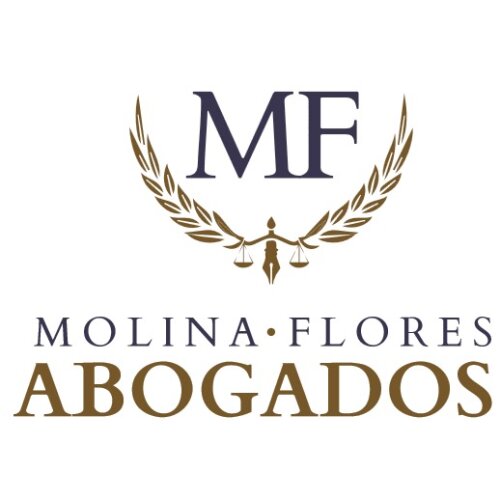Best Faith-Based Law Lawyers in Puebla City
Share your needs with us, get contacted by law firms.
Free. Takes 2 min.
List of the best lawyers in Puebla City, Mexico
About Faith-Based Law in Puebla City, Mexico
Faith-Based Law in Puebla City refers to the intersection of legal frameworks and religious beliefs, traditions, and institutions. In a city with a rich tapestry of cultural and religious diversity, understanding how laws relate to religious practices is crucial. Faith-Based Law can involve issues like religious rights, freedom of worship, and how faith institutions administer their internal regulations while adhering to national and local laws. Puebla City's deeply rooted religious traditions make Faith-Based Law particularly significant for many of its residents.
Why You May Need a Lawyer
Individuals may seek legal advice in Faith-Based Law for various reasons. Common situations include conflicts concerning the practice of religious rights, the need for legal guidance on religious institutions' governance, and disputes regarding religious-based education or employment. Additionally, legal assistance might be required for understanding how laws affect the rights of religious minorities or when dealing with inheritance and family law issues where religious principles play a role. In all these scenarios, a legal expert can help navigate the complex interactions between secular law and religious tenets.
Local Laws Overview
Puebla City, while respecting national statutes, recognizes the importance of religious freedoms and community rights. The Mexican Constitution protects freedom of religion, and local laws uphold this by allowing religious organizations certain liberties in how they manage affairs. Key aspects of local laws relevant to Faith-Based Law include: restrictions on the use of public resources for religious purposes, regulations regarding religious gatherings, and educational guidelines for religious institutions. Lawyers specialized in this field need to be adept at reconciling any potential conflicts between these local regulations and religious doctrines.
Frequently Asked Questions
What is the legal status of religious organizations in Puebla City?
Religious organizations are recognized as civil associations in Puebla City and must comply with regulations concerning their establishment and operation under Mexican law.
Can religious beliefs influence legal decision-making?
While personal beliefs can inform individual decisions, legal rulings and public policies are based on secular principles, ensuring neutrality and the protection of all citizens' rights.
Are faith-based schools subject to the same regulations as public schools?
Yes, while faith-based schools can incorporate religious teachings, they must adhere to general educational standards set by the government.
Is there legal support for interfaith marriage in Puebla?
Yes, interfaith marriages are legally recognized, but they must be performed under civil law, which respects the diverse religious affiliations of the couple.
What role do religious laws play in property disputes within faith communities?
Faith-based communities may have internal guidelines for property disputes, but ultimately, such matters are resolved under civil law jurisdiction.
How are faith-based charitable organizations regulated locally?
Faith-based charities must register and operate as civil associations, complying with transparency and accountability regulations set by law.
Can employers in Puebla City consider religious practices in hiring decisions?
Employers are prohibited from discriminating based on religion in hiring practices, except in specific religious institutions where faith is an intrinsic occupational requirement.
What protections exist for religious minorities?
Religious minorities are protected under the law, with guarantees for the freedom of expression and worship.
Is there a legal framework for converting from one faith to another?
Conversion is a personal decision and protected under the freedom of religion rights. However, it does not have specific legal procedures beyond those rights.
Are religious symbols allowed in public spaces?
Religious symbols can be displayed in private spaces and certain cultural contexts, though public spaces require neutrality to respect diverse beliefs.
Additional Resources
For further assistance, individuals can reach out to the following resources:
- Secretaría de Gobernación (SEGOB) - Manages religious associations and public policies.
- Local offices of the Comisión Nacional de Derechos Humanos (CNDH) - For cases related to human rights and religious freedoms.
- Bureau of Civil Associations - For information on the registration and operation of religious institutions.
- Local legal aid clinics - Often provide pro bono legal services or referrals.
- Religious community centers - Offer guidance and support tailored to their congregants' needs.
Next Steps
If you require legal assistance in Faith-Based Law, consider taking the following steps:
- Research and contact a lawyer specializing in Faith-Based Law for a consultation.
- Gather any relevant documents and details pertaining to your situation before meeting with a legal expert.
- Consider the potential impact of religious and secular laws on your case to ensure comprehensive understanding and representation.
- Engage community resources and seek advice from religious leaders, if applicable.
- Stay informed about any changes in local laws that could affect your rights or responsibilities.
Understanding the intersection of faith and law is essential for those navigating legal challenges in this area. Seeking competent legal assistance is critical to protecting your rights and achieving favorable outcomes in Faith-Based Law matters.
Lawzana helps you find the best lawyers and law firms in Puebla City through a curated and pre-screened list of qualified legal professionals. Our platform offers rankings and detailed profiles of attorneys and law firms, allowing you to compare based on practice areas, including Faith-Based Law, experience, and client feedback.
Each profile includes a description of the firm's areas of practice, client reviews, team members and partners, year of establishment, spoken languages, office locations, contact information, social media presence, and any published articles or resources. Most firms on our platform speak English and are experienced in both local and international legal matters.
Get a quote from top-rated law firms in Puebla City, Mexico — quickly, securely, and without unnecessary hassle.
Disclaimer:
The information provided on this page is for general informational purposes only and does not constitute legal advice. While we strive to ensure the accuracy and relevance of the content, legal information may change over time, and interpretations of the law can vary. You should always consult with a qualified legal professional for advice specific to your situation.
We disclaim all liability for actions taken or not taken based on the content of this page. If you believe any information is incorrect or outdated, please contact us, and we will review and update it where appropriate.









